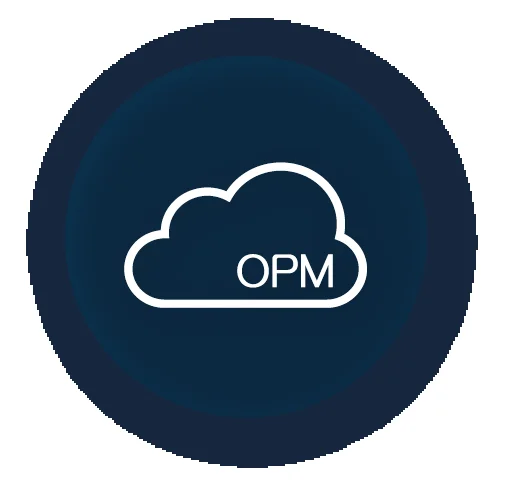OPM Isn't Just a New Chip: It's the Dawn of a New Human Era
I’ve spent the better part of my career staring at them. Glowing rectangles of all sizes, from the watch on my wrist to the monitor on my desk. They are our windows to the digital world, our portals to information and connection. And for a time, they were miracles. The graphical user interface, the touchscreen—these were revolutionary steps that brought the power of computing to billions. But let's be honest with ourselves. They’re also walls. They are brilliant, beautiful, and utterly clumsy intermediaries between our minds and our machines.
We tap, we swipe, we click, we type. We translate the fluid, non-linear nature of human thought into the rigid, sequential commands of a machine. It’s like trying to describe a symphony using only Morse code. We’ve gotten incredibly good at it, but it’s still a translation. The friction is always there. The delay between the spark of an idea and its digital expression is a canyon we’ve been trying to bridge for fifty years.
But what if the next great leap isn’t a better screen? What if it’s no screen at all?
The End of the Interface
We are standing at the precipice of a new era, one that I believe will be defined by the dissolution of the interface as we know it. This is the shift towards what you might call ambient or intuitive computing. We’re talking about a world where technology is no longer a destination you go to by picking up a device, but a seamless, invisible layer woven into the fabric of your reality. Think of it less as a tool you wield and more as a sense you possess.
This isn’t about some far-flung sci-fi fantasy. The foundational bricks are being laid right now in labs all over the world. We're seeing it in advanced haptics that let you feel digital objects, in spatial audio that can place sound in a room with pinpoint accuracy, and in the early stages of brain-computer interfaces—in simpler terms, it's about teaching the electrical signals of our brains and the binary code of our machines to speak the same native language, without a keyboard or a mouse acting as a clumsy translator.

I’ve been following this space for years, and the concepts emerging right now… honestly, they’re the kind of thing that reminds me why I got into this field in the first place. Imagine an architect walking through an empty lot, gesturing with her hands to raise walls, stretch windows, and paint surfaces into existence, seeing her creation materialize around her in real-time. Or a musician who doesn't play an instrument but thinks a symphony, hearing the full orchestra respond instantly to her mental composition. This isn't just a change in how we use technology; it's a fundamental change in how we create, learn, and connect. It’s the difference between reading a description of a foreign country and actually standing on its soil, feeling the sun on your face and hearing the sounds of the city.
A Renaissance of the Mind
Every so often, a technology arrives that doesn’t just change what we do, but changes who we are. The printing press didn’t just make more books; it democratized knowledge and fueled revolutions. The internet didn’t just connect computers; it rewired the very structure of our global society. This shift, from explicit command to intuitive creation, feels like that. It has that same earth-shattering potential.
Of course, there are hurdles and valid concerns. You see the headlines pop up, filled with dystopian fears about privacy and control. And we must have those conversations. The ethical guardrails for this new world must be built with more care and foresight than any we’ve built before. But to dismiss the entire paradigm out of fear is to miss the point. This isn't about technology invading our minds; it's about our minds breaking free from the constraints of our current technology.
I see the discussions bubbling up on forums and Reddit threads, and beneath the skepticism, there’s this palpable current of pure, unadulterated excitement. It's the thrill of the unknown. People are asking the right questions. What happens when the barrier between a creative spark and its realization collapses to almost zero, when you can build and share and collaborate at the speed of thought? What new forms of art, science, and human expression become possible when our tools are no longer separate from our own consciousness?
This is the promise. Not just a more efficient way to check email, but a profound augmentation of human capability. It’s a technology that doesn’t demand our attention, but enhances our presence. One that doesn’t pull us into a virtual world, but empowers us to more deeply shape the real one.
We're Just Getting Started
Look, the glowing rectangle in your pocket is a masterpiece of engineering. It has defined an entire generation of human interaction with the digital realm. But it’s a stepping stone, not the destination. We’re moving from a world where we had to learn the language of the machine to one where the machine is finally, truly, learning ours. The future isn’t about better apps or faster processors. It’s about a quieter, more human, and infinitely more creative reality. And we are the architects of it.
Tags: opm
Comerica Bank: Locations, Hours, and What You Need to Know – What Reddit is Saying
Next PostWendy's to Close Hundreds of Restaurants: The Financial Reality Behind the Headlines
Related Articles
